Russian warships pass through English Channel
- Published
Footage shows Russian warships passing through the English Channel
A flotilla of Russian warships is passing through the English Channel en route to Syria.
Two British naval ships are shadowing the vessels. The Ministry of Defence said they would be "man-marked every step of the way" while near UK waters.
A Russian tug, believed to be in convoy with the taskforce, entered the channel first off the coast near Ramsgate.
EU leaders have strongly condemned Russia's involvement in bombing the Syrian city of Aleppo.
The ships are within international waters but Defence Secretary Michael Fallon said the UK would "be watching as part of our steadfast commitment to keep Britain safe".

You might also like:

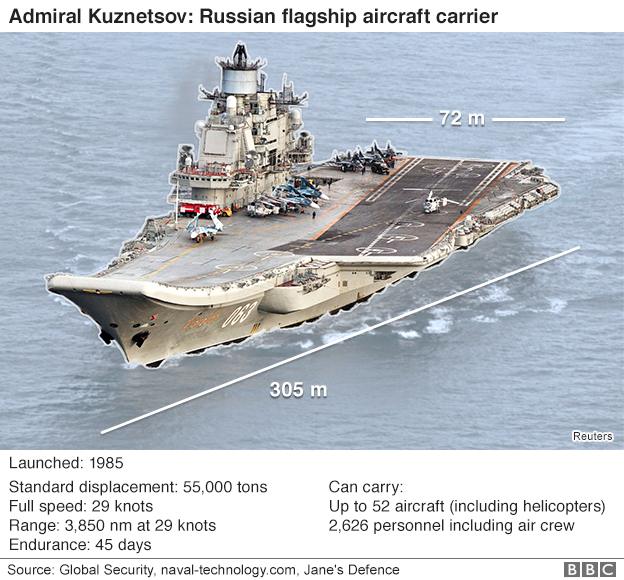
The UK's Type 45 destroyer HMS Duncan, escorted by the Type 23 frigate HMS Richmond, sailed from Portsmouth on Tuesday to track the Kuznetsov group as it headed south from the Norwegian Sea.
The aircraft carrier Admiral Kuznetsov and other Russian naval vessels are believed to be heading to the eastern Mediterranean.
It is the only carrier in the Russian navy and can carry more than 50 aircraft. Its weapons systems include granit anti-ship cruise missiles.

Why such a large-scale deployment?
By Steve Rosenberg, BBC Moscow correspondent
One Russian newspaper this week described the Russian warships heading to the Mediterranean as an "armada".
But why such a large-scale deployment? And why is Moscow sending its only aircraft carrier, the Admiral Kuznetsov, to the region?
Friday's Komsomolskaya Pravda makes it clear:
"This is no tourist trip to the Med. It will strengthen Russia's current naval presence off the Syrian coast and provide air cover. The aircraft carrier planes and on-board weapons may also be used for strikes against terrorists."
But this is not just about boosting Russian firepower in Syria. If that was the case, it would be easier for Moscow to deploy more bombers to its airbase in Syria near Latakia.
Sending a large Russian flotilla through the North Sea and the English Channel sends a clear message to the West: anything you can do, we can do just as well - or even better.
Russia wants to be seen as a global player, a major military power. And it wants to be respected or feared (or both) by the West.

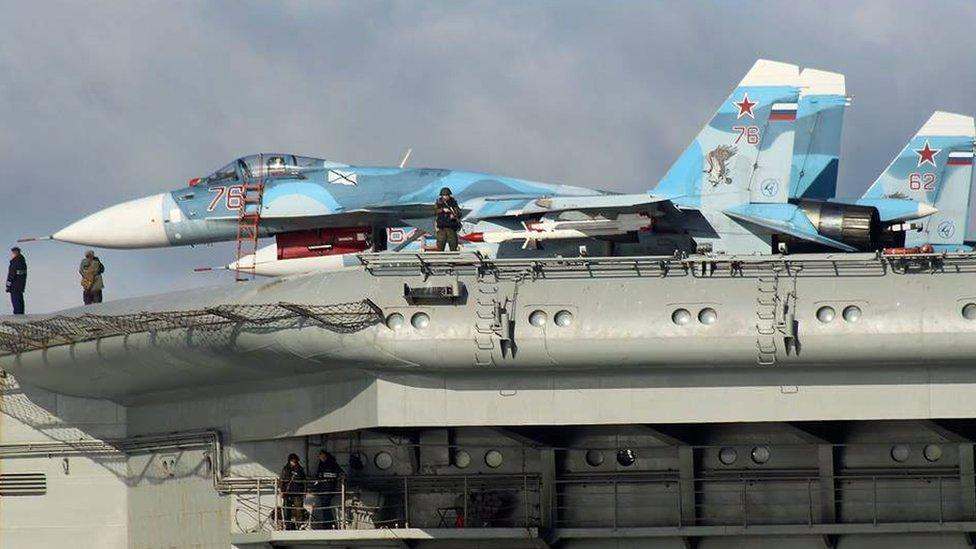
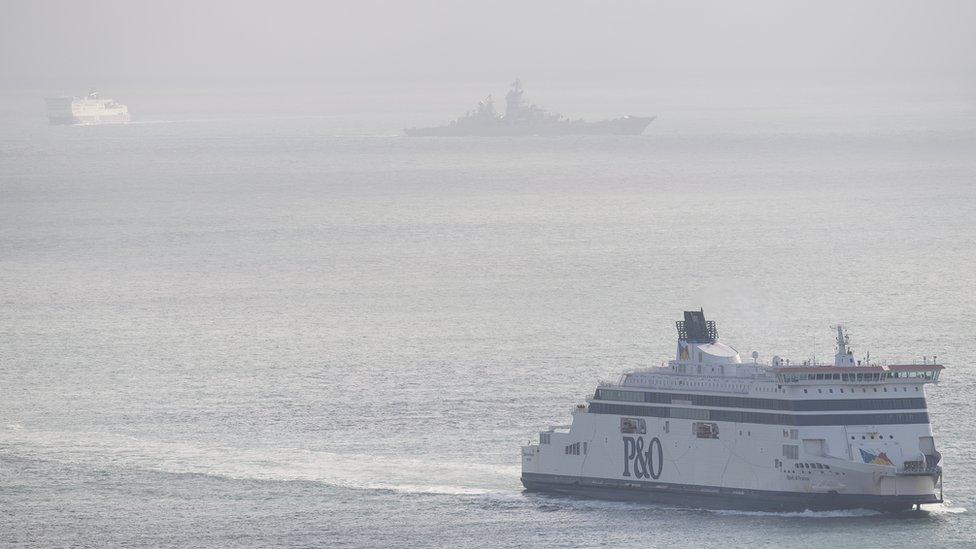
A passenger ferry passes the Russian aircraft carrier in the English Channel
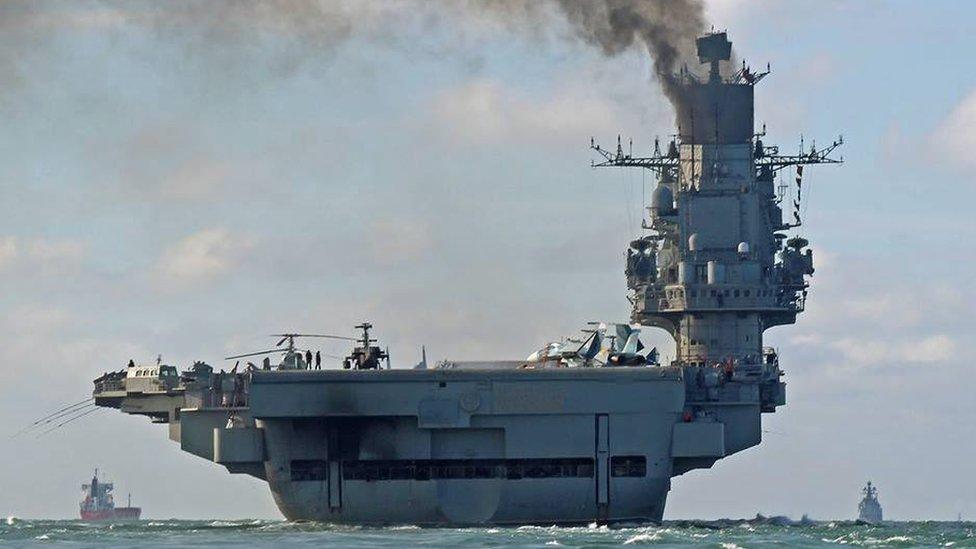
Russia already has about 10 ships off Syria, which have fired cruise missiles during Russia's bombardment of what it says are anti-government rebels in Syria.
The deployment comes as a "humanitarian pause" in attacks on rebel-held eastern Aleppo in Syria begins.
The temporary truce is part of a plan to allow civilians and fighters to leave, and Russian and Syrian air strikes have been halted since Tuesday.
Prime Minister Theresa May urged European leaders to send a "robust united message" to Moscow over its bombing campaign.
At a Brussels summit on Thursday, Mrs May told her counterparts the current assault on Aleppo was "particularly horrific" and Russia's actions had "undermined the West's efforts" to provide a political settlement, Downing Street sources said.
Although the EU imposed sanctions on Russia following the conflict in eastern Ukraine, it has so far failed to act over Moscow's military intervention in Syria.
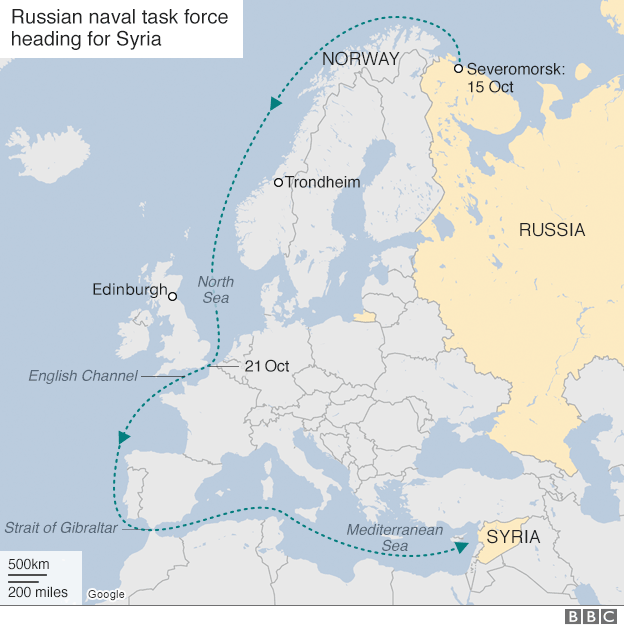
- Published20 October 2016
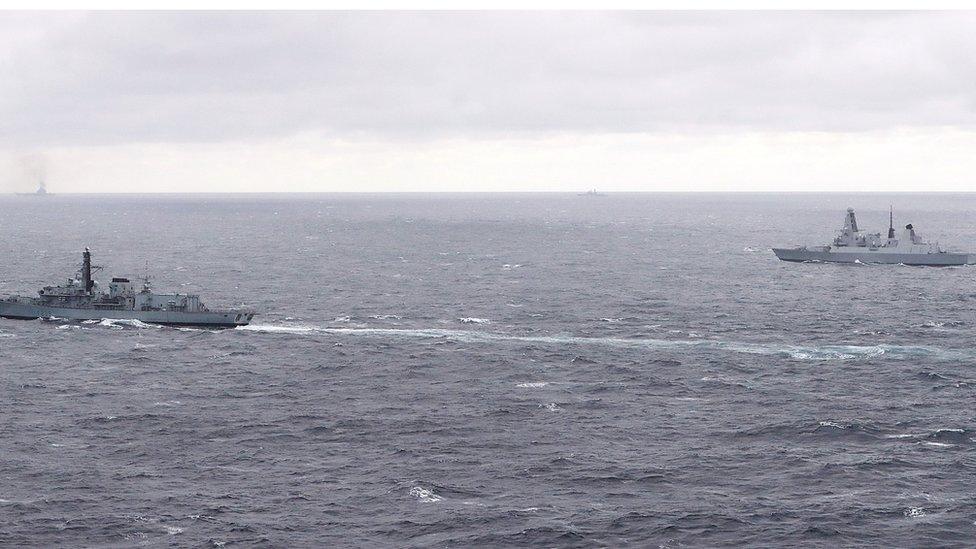
- Published21 October 2016
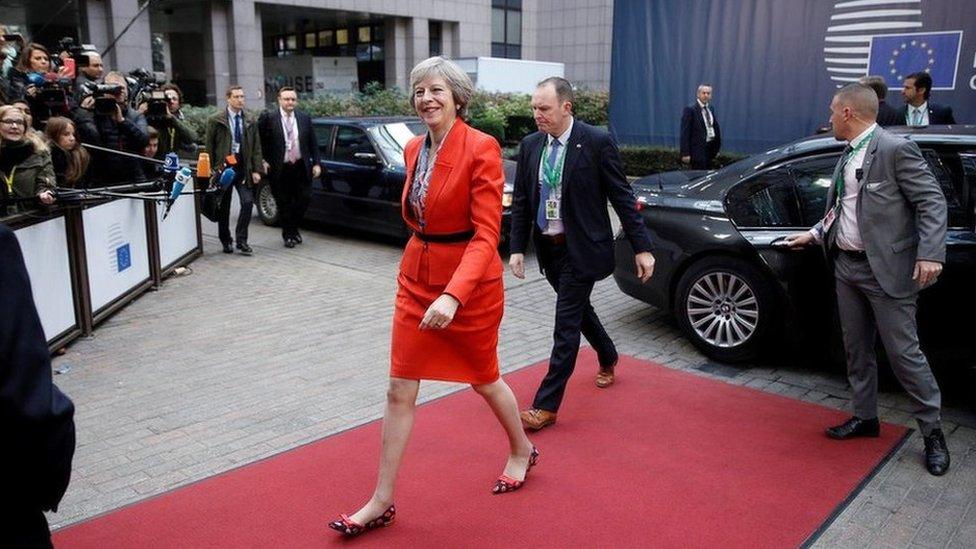
- Published20 October 2016
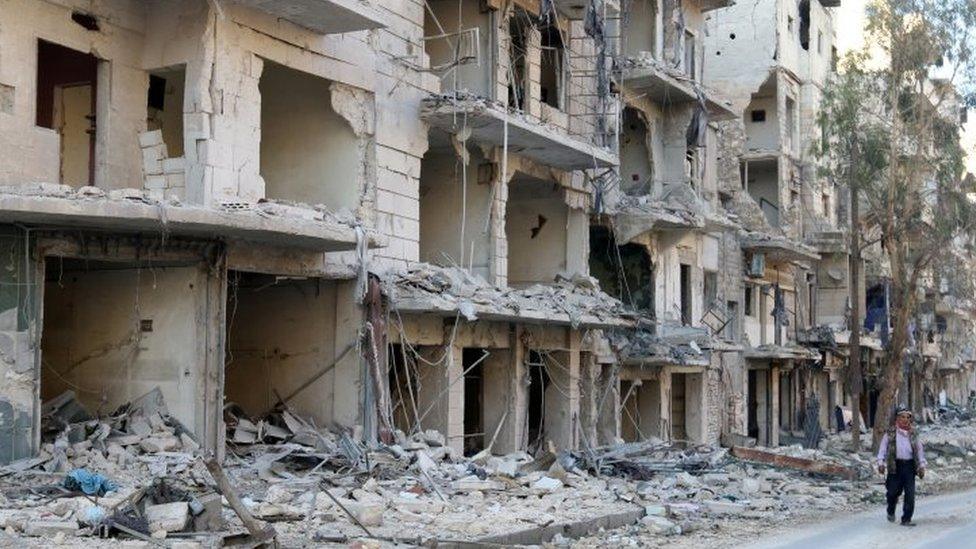
- Published19 October 2016
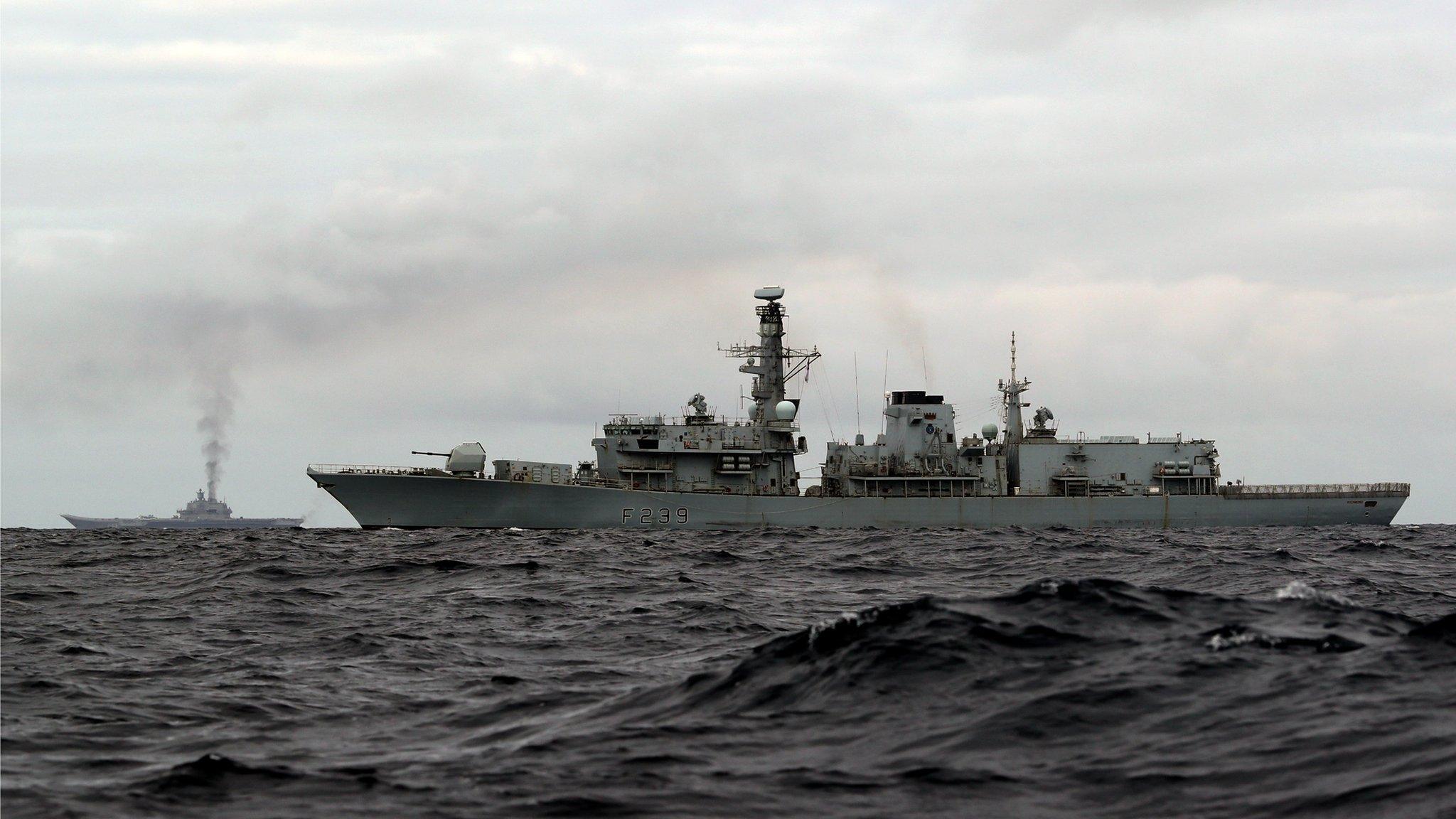
- Published18 October 2016
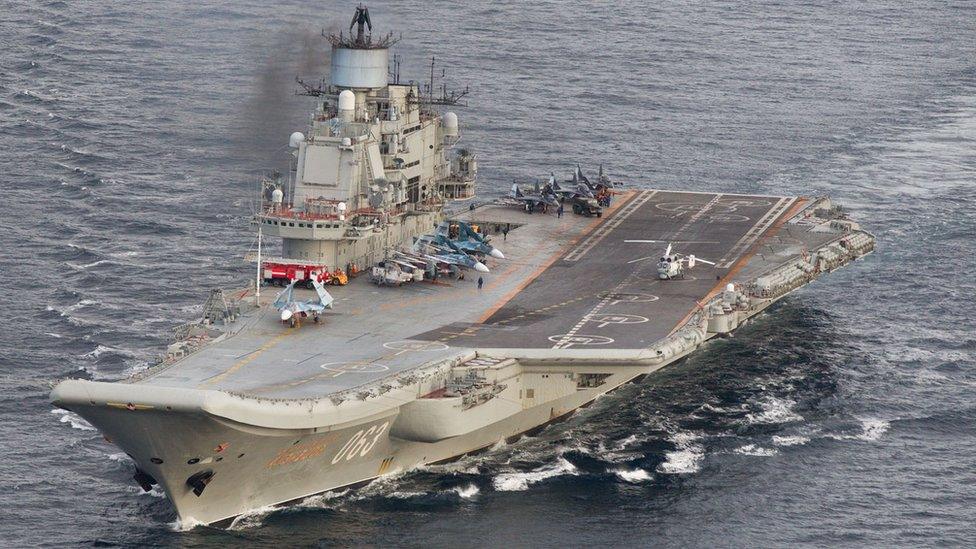
- Published4 October 2016
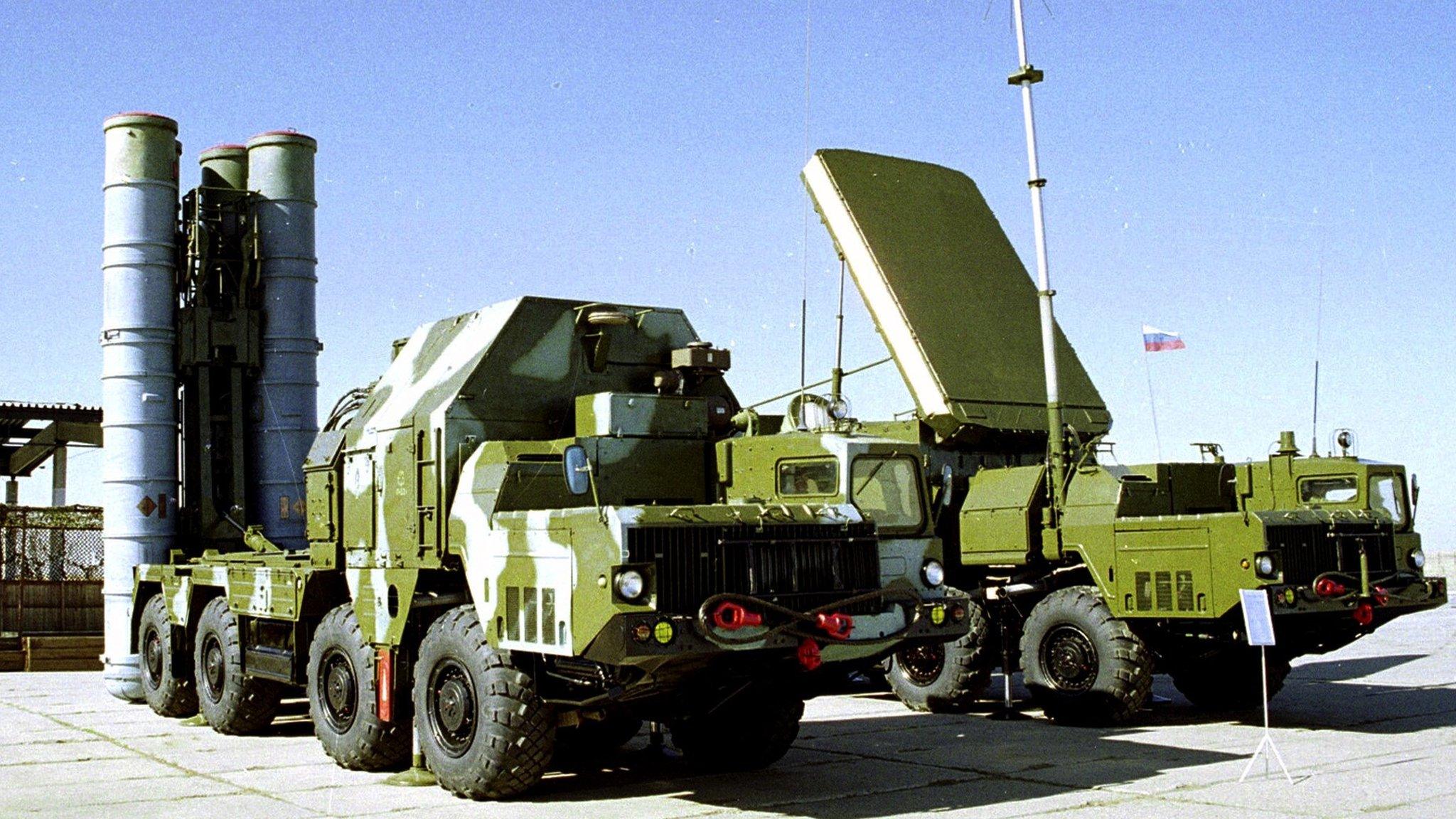
- Published10 October 2016
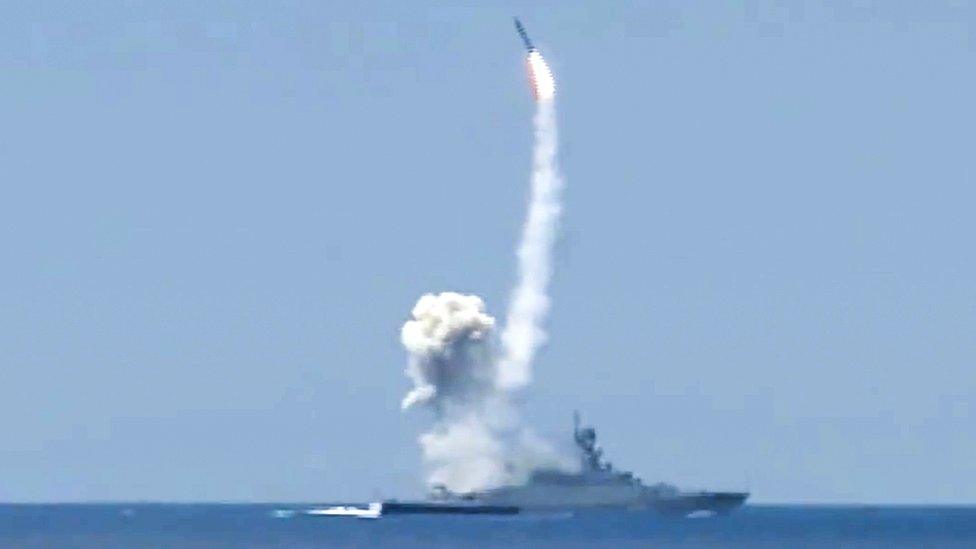
- Published9 October 2016
- Published11 August 2016